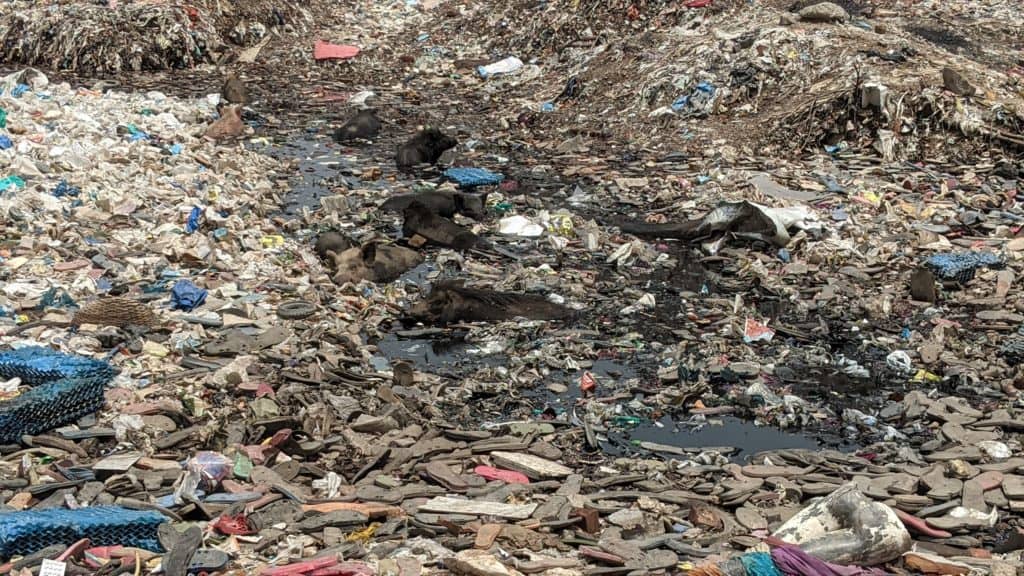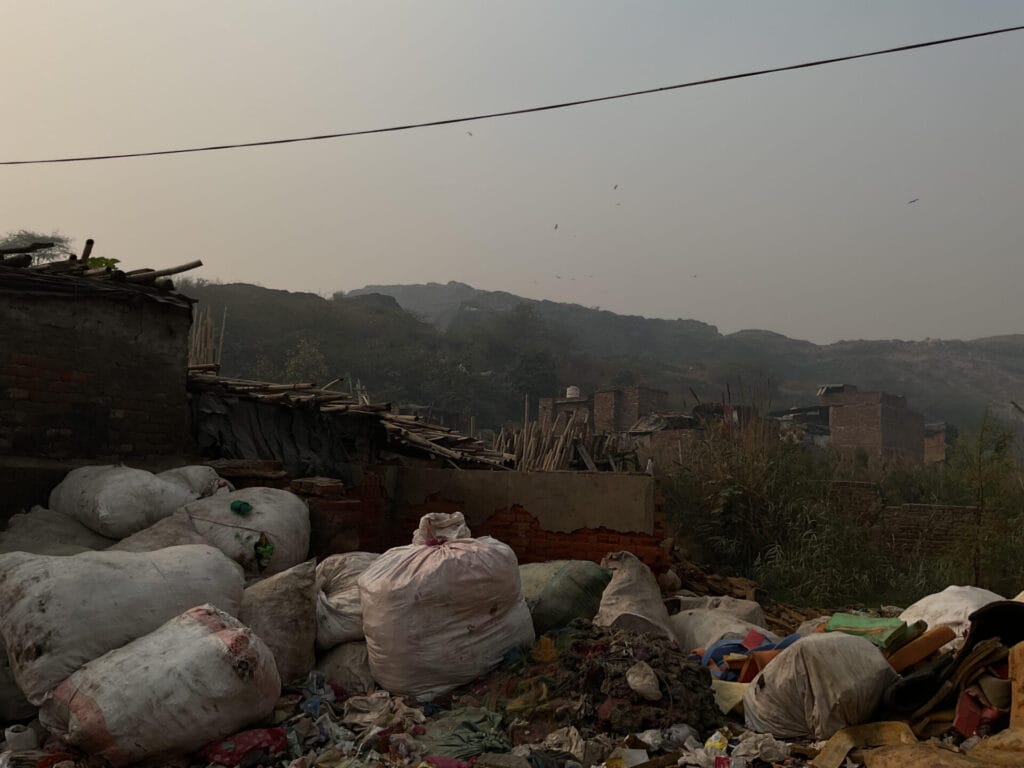Paro, 26, a resident of Shraddhanand colony in Bhalswa, and her friends wait patiently for the water tanker, surrounded by buckets and barrels – a routine that repeats twice weekly. “We pause all our tasks to ensure we secure enough water. It’s only available twice,” Paro remarks.
For years, Paro and her fellow colony dwellers have relied on water tankers. The local groundwater, tainted by the adjacent Bhalswa landfill in northwest Delhi since 1994, makes it a necessity. Meena, 36, standing alongside Paro, succinctly notes, “Khate (landfill) ki wajah se pani achha nahi hai.” [The water quality is poor because of the landfill.]
Meena’s reference to groundwater contamination can be traced back to the haphazard dampness that engulfed Bhalswa in 1994. The unplanned dumping site lacked the necessary channels to control the flow of leachate and rainwater, allowing the latter to permeate the waste. Consequently, leachate found its way into the groundwater, tarnishing both ground and surface water.
According to a Delhi Pollution Control Board committee, water quality assessments near the Bhalswa landfill and its surroundings revealed elevated levels of Total Dissolved Solids (TDS), magnesium, lead, sulphur, and various other metals. Consumption of such polluted water poses severe health risks, one of the far-reaching consequences of the unchecked contamination.
Paro’s mother reflects on three and a half decades in Bhalswa, a time predating the landfill. “When we first bought this land from the developer, the dump didn’t exist. Water wasn’t a concern back then; the groundwater was pure. But now, with the arrival of the dumping site, our lives revolve around chasing water tankers.”

Similarly, Meena installed a hand pump approximately seven years ago, only to find it unused due to foul-smelling and pale water.
Kulsum Begum, 70, residing closer to the ‘khata’, works as a waste segregator. Sharing her experience, she says, “We drilled a borewell 5-6 years ago, but the water is useless. Even at a depth of 120 feet, it’s saline.” Their accounts echo the profound impact the landfill has had on the once abundant and clean water sources in Bhalswa.
Read more: Unearthing invisible layers of life near Delhi’s Bhalswa landfill
Lives revolving around water access
Despite certain areas in Bhalswa having piped water supply (albeit irregular), most households still depend on water tankers due to the inconsistency in the supply. This heavy reliance places a disproportionate burden on women: it increases the time they spend on unpaid domestic care work and contributes to heightened time poverty among women in the community. The irregular water supply exacerbates the challenges faced by women in managing essential household tasks.
Women in these colonies not only bear the burden of care work but are also actively engaged in waste segregation at home or collect waste from the dumping site.
Additionally, many women in the nearby Shraddhanand colony, whose households are not directly involved in waste management, find employment in home-based work: specifically, packaging ‘chuna’ powder in small bottles for a nearby tobacco factory. But the demands of water collection make it only more challenging for these women to pursue these means of earning.
Read more: Ecological damage, land lost: The cost of Delhi’s toxic landfills
This struggle underlines the multifaceted impact that water scarcity has on their daily lives. Apsara Khatoon, who collects waste from the landfill and then segregates it, says, “I come running from the landfill when I see the water tanker arriving at the colony. Even my children have to help me with water.” This repetitive cycle of fetching water requires them to take frequent unproductive breaks from paid work, leaving them in a state of restlessness, always on the lookout for water.
According to Paro and the other women in the colony, the quality and quantity of water supplied by the tanker may not be an immediate concern. But it is nevertheless an enduring struggle to fill water. As Paro poignantly puts it, “Haath tut jaate hai paani bharte bharte” (Our hands nearly give way, thanks to the repeated exercise of filling water).
Note: The author is one of six selected Fellows for the “Citizen Matters – Urban Environmental Reporting Fellowship 2023” focusing on the Delhi-NCR region. This short piece was produced as part of his work under the Fellowship.
